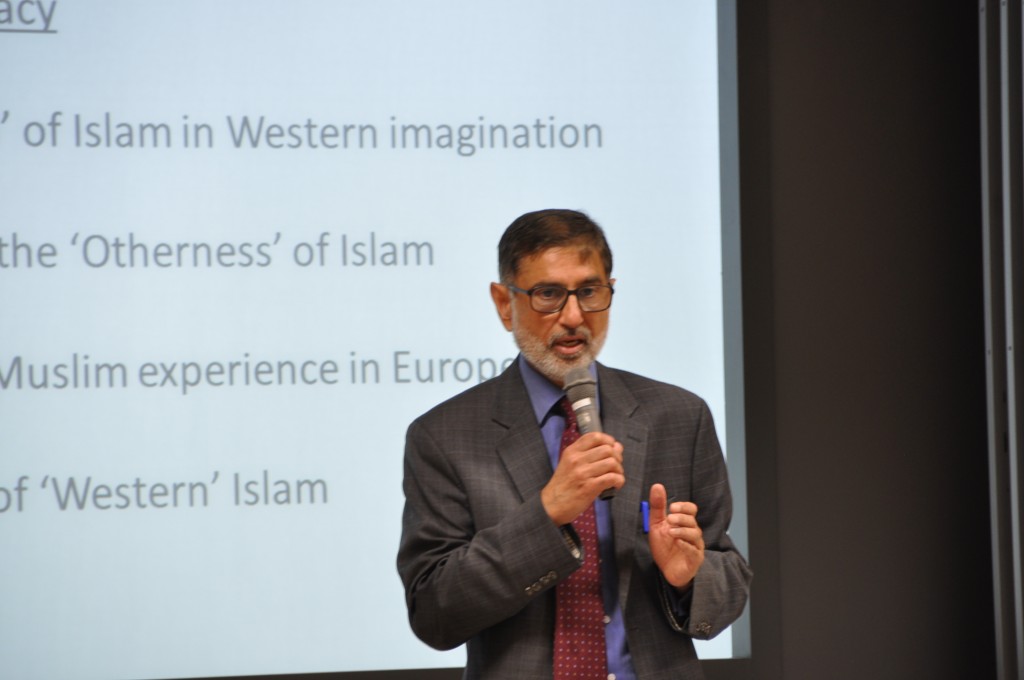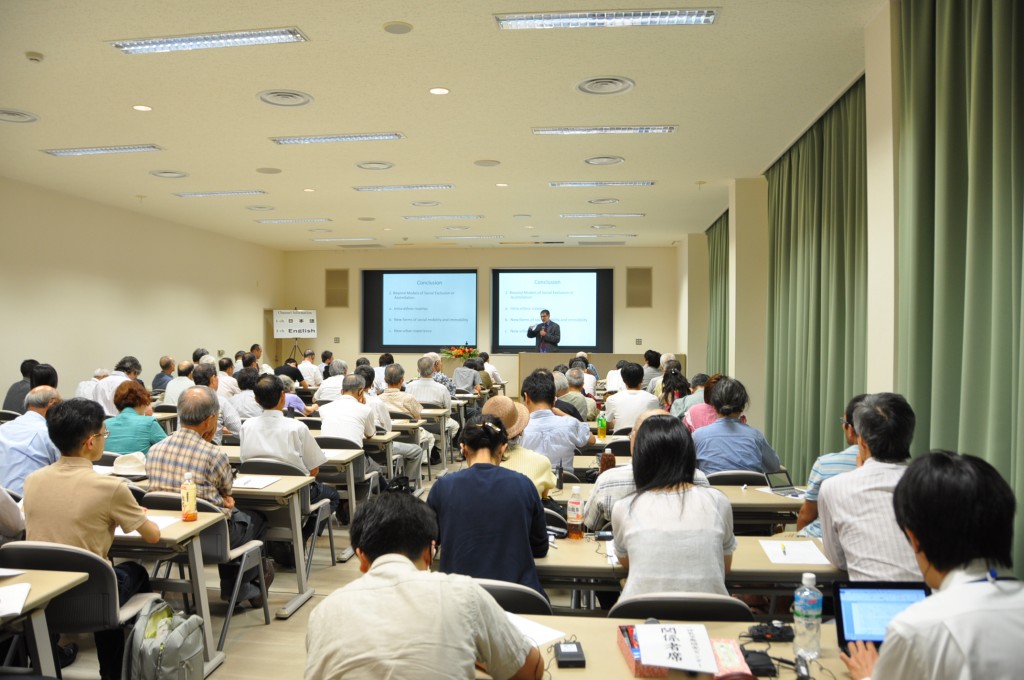Center for Interdisciplinary Study of Monotheistic Religions(CISMOR)Doshisha University
> Public Lectures > Securitization and Islam in BritainPublic Lectures
Open Lecture by Project2
Securitization and Islam in Britain
| Date: |
2011/09/16 14:00 − 16:00 |
|---|---|
| Place: | Room KB104, Koubu-kan, Imadegawa Campus, Doshisha University |
| Lecture: | Mustapha Kamal Pasha, Sixth Century Professor/ Head of International Relations, University of Aberdeen |
| Summary: | |
|
How is Islam portrayed in Europe? In general, the image of Muslims is associated with anti-modernity, and it is taken for granted that modernity is synonymous with secularism. In the general media, portrayal of Muslims, only their super-religious aspects are emphasized. As a result, the image of Islam as an anti-modern religion prevails among the general public. In addition, the image of Islam is often associated with violence. In reality, however, there is no such thing as religious violence. Even if violence is exercised accompanied by language of Islamic nature, the true reason behind the violence lies elsewhere, e.g., nihilism and political resistance. A survey was conducted to find out how Islam was portrayed by the British media. According to the survey, the most common news hook in stories about British Muslims was terrorism, which accounted for more than 30% of all the stories surveyed, followed by religious and cultural issues; and then by Muslim extremism. The image of Islam as a religion of violence grew rapidly in the wake of the September 11, 2001 terrorist attacks in the U.S. and the July 7, 2005 London bombings. The concept of the “Clash of Civilizations” predicted by Samuel Huntington became widely known to the public after the 9/11 attacks, inspired people to take action, and eventually became a reality in a self-fulfilling manner. Since the days of the Reconquista, Muslims in Europe have been regarded as “others” in both cultural and religious terms, and have been blamed for having invaded from the “outside” world, bringing problems with them. In reality, however, Muslims have always been “inside” Europe, exerting huge influence over this region. As well, the situation of European Muslims varies from country to country. Muslim immigrants in Europe face discrimination in various aspects of their life, including housing, employment, and social mobility. The Muslim population in Britain, the majority of whom are from South Asia, amounts to about 2.9 million, and there are approximately 1,500 mosques across the country. Since the 9/11 and 7/7 attacks, Islam has been seen as a threat to national security. Muslims are accused of stealing jobs from British citizens, while Muslim families and mosques are often depicted as breeding grounds for terrorists, which has reinforced the image of Islam as a dangerous religion. There are two types of securitization measures: One is severe and the other is moderate. Compared with the U.S., which is reported to have tortured Muslim prisoners at army camps, Britain’s attitude toward Muslims is more moderate, but British Muslims, too, are suffering hardships, such as verbal insults and harassment on increasing occasions. Western and Japanese media often portray Muslims as “super-religious” and “violent”. Such an image of Muslims has also affected Muslims in defining their identity—they have fallen into a trap of “self-orientalism” and have been led to act in a manner that reinforces a stereotypical image of themselves. On the other hand, we are seeing the emergence of European Muslims, as indicated by Dr. Tariq Ramadan. Muslims of this generation were born in Europe, speak European languages, identify themselves as a citizen of a European country, hope to “settle down in the country,” and respect European values while maintaining a Muslim identity. The increasing presence of these Muslims has caused a change in the meaning of “immigrants.” How have European countries treated immigrants politically? European immigrant policies can be roughly divided into two models: An exclusion model and an assimilation model. Countries that adopt the former model accept immigrants as far as they are not the cause of trouble, but exclude them from society to some extent by restricting their civil rights, etc. In the latter model, immigrants are required to abandon their identities and assume the identity of a citizen of the host country. However, neither of these models has proven successful. To be specific, the “racial melting pot” model of the U.S. ended in failure, as shown by the 9/11 attacks. In addition, German Prime Minister Angela Merkel declared that German multiculturalism had utterly failed. What she said contains some truth, as a multicultural approach can send certain groups over the edge. Recently, there have been an increasing number of conflicts arising among immigrants. For example, Muslims were killed by Afro-Americans in the riot that took place in the summer of 2011 in Britain. While conventional conflicts have been those between whites and non-whites, the recent ones are between the few immigrants who have achieved certain success in British society and the immigrants who have not. Social mobility is very low in Britain. In this country, the service industry has taken over the position of the once-prospering manufacturing industry, due to the shift in the industrial structure. Becoming employed in the service industry requires a certain level of education, which is not sufficiently available in immigrant communities. If we are to overcome prejudice against Islam, we should rethink the relation between modernity and secularism. As far as we stick to the notion that secularism is a prerequisite for modernity, we cannot eliminate prejudice. Religions can be compatible with modernity. As shown by the “Arab Spring,” it is wrong to portray Muslims simply as “super-religious” beings. So far, we have wrongfully focused on the religious aspects of Muslims only. If we had looked at their daily life, we would have been able to understand what they truly demand. Shunsuke Sugita (Research Assistant, Graduate Student of School of Theology, Doshisha University) |
|
|
*This lecture will be given in English. *Admission Free, No Reservation Necessary. Hosted by: CISMOR Co-hosted by: School of Theology, Doshisha University |
|
|
Program (Japanese) |
|

